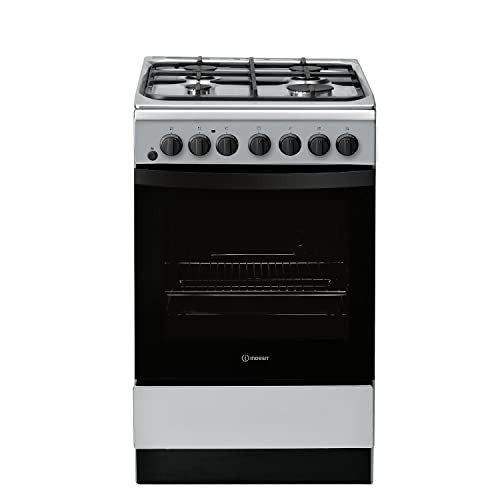Find Out What Ovens And Hobs The Celebs Are Using
Understanding Ovens and Hobs: A Comprehensive Guide
Cooking has come a long method because the days of open flames and rudimentary cooking methods. Today, ovens and hobs are at the heart of modern-day kitchens, providing versatility, efficiency, and an array of cooking alternatives. Whether Sales Ovens are a newbie cook or a seasoned chef, comprehending the distinctions, features, and functions of these home appliances is important for optimizing cooking capacity. This short article breaks down the various kinds of ovens and hobs readily available on the marketplace, their performances, and how to select the right devices for your kitchen.
What is an Oven?
An oven is an enclosed space created for heating and cooking food, providing numerous approaches such as baking, roasting, and broiling. Ovens come in different types, each serving unique cooking preferences and requirements.
Kinds of Ovens
Standard Ovens:
- Use gas or electricity for heating.
- Normally consist of a heating component at the top and bottom.
- Suitable for standard baking tasks.
Convection Ovens:
- Use a fan to flow hot air, promoting even cooking.
- Suitable for baking, roasting, and reheating.
- Minimizes cooking time and improves flavor.
Steam Ovens:
- Utilize steam to prepare food while retaining wetness and nutrients.
- Exceptional for health-conscious cooking, such as vegetables and fish.
Microwave Ovens:
- Use electro-magnetic radiation to heat food quickly.
- Best for reheating leftovers or cooking basic meals.
Wall Ovens:
- Built into the wall, conserving space in the kitchen.
- Offered in different setups, including single or double ovens.
Key Features of Ovens
- Temperature level Control: Precision heating for numerous baking and preparing processes.
- Self-Cleaning Options: Some models have self-cleaning modes that utilize high temperatures to burn food residue.
- Smart Features: Wi-Fi connectivity enables remote pre-heating, tracking, and dish management by means of smartphones.
What is a Hob?
A hob is a cooking surface area, often described as a stove or cooktop, where pots and pans is positioned for heating. Hobs are available in various materials, sizes, and heating techniques, accommodating varied cooking needs.
Kinds of Hobs
Gas Hobs:
- Utilize gas burners for direct flame cooking.
- Offer exact temperature level control and are favored by lots of professional chefs.
Electric Hobs:
- Use electric coils or smooth tops.
- Some designs are geared up with induction innovation, offering fast heating through electromagnetic energy.
Induction Hobs:
- Cookware needs to be made of magnetic products.
- Very energy-efficient, supplying rapid heat and minimizing burn dangers.
Ceramic Hobs:
- Feature a glass-ceramic surface with heating elements underneath.
- Easy to clean however can be less energy-efficient than induction hobs.
Key Features of Hobs
- Burner Configuration: Varies from 2 to six burners, depending upon design and size.
- Power Levels: Multiple settings permit for higher accuracy in cooking.
- Safety Features: Options like flame failure gadgets and child lock settings make sure safety throughout cooking.
Picking the Right Oven and Hob
Picking the best oven and hob for your kitchen includes careful factor to consider of various aspects. Below is a list of concerns to guide your selection procedure:
- What is your primary cooking design?
- How much kitchen area do you have?
- What is your budget?
- Do you choose gas or electric appliances?
- Are additional functions like wise connection essential to you?
Table Summary of Key Differences Between Ovens and Hobs
Feature
Oven
Hob
Functions
Baking, roasting, broiling
Boiling, frying, sautéing
Cooking Method
Confined heat
Direct cooking surface
Temperature level Control
Adjustable settings
Range settings
Types
Electric, gas, convection, microwave
Gas, electric, induction, ceramic
Cooking Capacity
Larger (can cook multiple dishes)
Smaller (focus on instant cooking)
Cleaning
Self-cleaning options readily available
Normally manual cleaning required
Upkeep Tips for Ovens and Hobs
Appropriate care and maintenance of your cooking devices extend their life expectancy and effectiveness. Here are essential maintenance suggestions:
Regular Cleaning:
- Clean the oven interior after each use to avoid residue buildup.
- Clean down hob surface areas after preparing to avoid discolorations.
Check Seals:
- Ensure the oven door seals are intact to keep energy performance.
- Change damaged gaskets and seals as required.
Examine Burners and Elements:
- For gas hobs, check for obstructions in burners.
- For electric hobs, examine coils and surface areas for indications of wear.
Frequently asked questions
Can I utilize any cookware on induction hobs?
- No, induction hobs only deal with magnetic pots and pans, such as cast iron or stainless steel.
What is the most energy-efficient cooking home appliance?
- Induction hobs are normally the most energy-efficient alternative, utilizing less energy than standard gas or electric designs.
How frequently should I clean my oven?
- It's advisable to clean your oven every couple of months, or more often if you use it typically.
Can I install an oven and hob separately?
- Yes, both appliances can be installed independently based on kitchen design and area.
What should I think about when installing a gas hob?
- Ensure proper ventilation and comply with local security codes. It is advisable to have a professional install gas devices.
Understanding the functions, types, and maintenance of ovens and hobs can substantially enhance your cooking experiences. Choosing the best appliances customized to your cooking style, kitchen space, and safety requirements can make all the difference in attaining cooking success. By being notified about your alternatives, you can enjoy a more efficient and satisfying cooking journey, bringing tasty meals to your table with ease.
